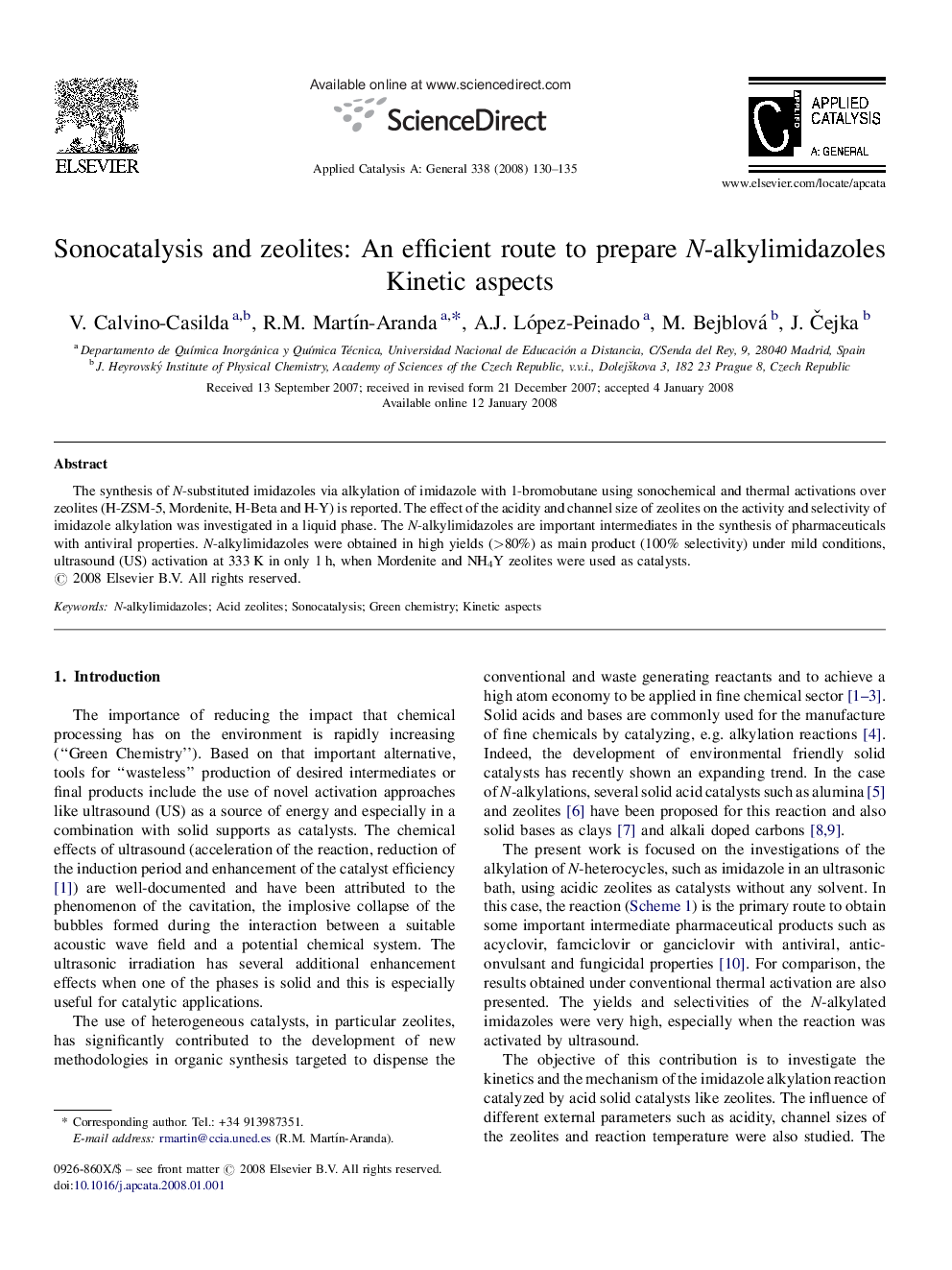| Article ID | Journal | Published Year | Pages | File Type |
|---|---|---|---|---|
| 43047 | Applied Catalysis A: General | 2008 | 6 Pages |
The synthesis of N-substituted imidazoles via alkylation of imidazole with 1-bromobutane using sonochemical and thermal activations over zeolites (H-ZSM-5, Mordenite, H-Beta and H-Y) is reported. The effect of the acidity and channel size of zeolites on the activity and selectivity of imidazole alkylation was investigated in a liquid phase. The N-alkylimidazoles are important intermediates in the synthesis of pharmaceuticals with antiviral properties. N-alkylimidazoles were obtained in high yields (>80%) as main product (100% selectivity) under mild conditions, ultrasound (US) activation at 333 K in only 1 h, when Mordenite and NH4Y zeolites were used as catalysts.
Graphical abstractThe kinetic of imidazole alkylation with 1-bromobutane (sonochemical vs. thermal activations) over zeolites (H-ZSM-5, Mordenite, H-Beta and H-Y) is reported. Acidity and channel size of zeolites affect activity and selectivity of imidazole alkylation. Mordenite and NH4Y zeolites produce N-alkylimidazoles in high yields (>80%) and 100% selectivity under mild conditions, ultrasound activation at 333 K in only 1 h. Figure optionsDownload full-size imageDownload as PowerPoint slide
